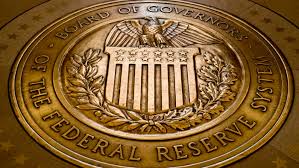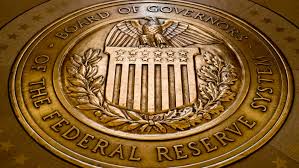
US Federal Reserve Chair Jerome Powell has said that central bankers of the country would consider the ending their asset purchases a few months earlier than expected in their scheduled meeting in December as Powell cited a robust economy, but stagnant job growth, and high inflation that is forecast to persist until the middle of next year.
Powell followed up his hawkish tone with the observation that the economic risk from an emerging strain of Covid-19, the omicron variant, will be better recognised by the Fed's policy meeting on December 14-15, but will in any event be considerably smaller than in the spring of 2020, when the pandemic started.
"Since the last meeting, we've seen basically elevated inflation pressures, we've seen very strong labor market data without any improvement in labor supply, we’ve seen strong spending data too," the Fed chief told members of the Senate Banking Committee.
High inflation, which is currently running at more than double the Fed's flexible annual target of 2 per cent but has been labelled "transitory" by the central bank for months, is only projected to drop in the second half of 2022, according to Powell.
Given how long it has lasted, Powell said: "I think it's probably a good time to retire that word."
The Fed started cutting its monthly purchases of Treasuries and mortgage-backed securities from $120 billion earlier this month, on schedule to complete the wind-down by mid-2022. The initiative was launched in early 2020 to aid in the economy's recovery from the Covid-19 pandemic.
"We are actually at our next meeting in a couple of weeks going to have a discussion about accelerating that taper by a few months," Powel said in his testimony.
His remarks reflect a number that Fed officials have recently advocated for, or at least shown an openness to, terminating asset purchases sometime in the spring to allow for an earlier start of interest rate hikes if required to keep inflation under control.
The development of the Omicron variation has rattled global financial markets in recent days, amid worries that it might spread more quickly, penetrate vaccine barriers, and be more severe than the current prevalent Delta strain.
Powell's comments sparked a sell-off in US equities, with the S&P 500 index falling 1.3 per cent, and slowed a gain in US Treasuries.
Interest-rate futures traders have resumed pricing in a June start to Fed interest rate rises, with at least one more raise in borrowing costs expected before the end of 2022.
"It now looks like it will take a deterioration in the public health situation over the next two weeks to prevent the FOMC (Federal Open Market Committee) from deciding to quicken the pace of tapering at the next meeting," Michael Feroli, an economist at JP Morgan, wrote in a note.
Health authorities are scrambling to figure out how transmissible and lethal the new Omicron variant of the coronavirus is, as well as how effective current vaccines are. The US has put a travel restriction on select countries in southern Africa where the strain is widespread.
Over the summer, the Delta variety harmed the US economy, reducing job growth due to workers' worries of getting the virus and increasing supply chain problems that have pushed up inflation.
"It's really about transmissibility, it's about the ability of the vaccines to address any new variant, it's about the severity of the disease once it's contracted ... I am told by experts we'll know quite a bit about those answers within about a month," Powell said in his testimony. "We'll know something, though, within a week to 10 days."
"Then and only then can we make an assessment of what the impact would be on the economy ... For now, it's a risk to the baseline, it’s not really baked into our forecast."
(Source:www.usnews.com)
Powell followed up his hawkish tone with the observation that the economic risk from an emerging strain of Covid-19, the omicron variant, will be better recognised by the Fed's policy meeting on December 14-15, but will in any event be considerably smaller than in the spring of 2020, when the pandemic started.
"Since the last meeting, we've seen basically elevated inflation pressures, we've seen very strong labor market data without any improvement in labor supply, we’ve seen strong spending data too," the Fed chief told members of the Senate Banking Committee.
High inflation, which is currently running at more than double the Fed's flexible annual target of 2 per cent but has been labelled "transitory" by the central bank for months, is only projected to drop in the second half of 2022, according to Powell.
Given how long it has lasted, Powell said: "I think it's probably a good time to retire that word."
The Fed started cutting its monthly purchases of Treasuries and mortgage-backed securities from $120 billion earlier this month, on schedule to complete the wind-down by mid-2022. The initiative was launched in early 2020 to aid in the economy's recovery from the Covid-19 pandemic.
"We are actually at our next meeting in a couple of weeks going to have a discussion about accelerating that taper by a few months," Powel said in his testimony.
His remarks reflect a number that Fed officials have recently advocated for, or at least shown an openness to, terminating asset purchases sometime in the spring to allow for an earlier start of interest rate hikes if required to keep inflation under control.
The development of the Omicron variation has rattled global financial markets in recent days, amid worries that it might spread more quickly, penetrate vaccine barriers, and be more severe than the current prevalent Delta strain.
Powell's comments sparked a sell-off in US equities, with the S&P 500 index falling 1.3 per cent, and slowed a gain in US Treasuries.
Interest-rate futures traders have resumed pricing in a June start to Fed interest rate rises, with at least one more raise in borrowing costs expected before the end of 2022.
"It now looks like it will take a deterioration in the public health situation over the next two weeks to prevent the FOMC (Federal Open Market Committee) from deciding to quicken the pace of tapering at the next meeting," Michael Feroli, an economist at JP Morgan, wrote in a note.
Health authorities are scrambling to figure out how transmissible and lethal the new Omicron variant of the coronavirus is, as well as how effective current vaccines are. The US has put a travel restriction on select countries in southern Africa where the strain is widespread.
Over the summer, the Delta variety harmed the US economy, reducing job growth due to workers' worries of getting the virus and increasing supply chain problems that have pushed up inflation.
"It's really about transmissibility, it's about the ability of the vaccines to address any new variant, it's about the severity of the disease once it's contracted ... I am told by experts we'll know quite a bit about those answers within about a month," Powell said in his testimony. "We'll know something, though, within a week to 10 days."
"Then and only then can we make an assessment of what the impact would be on the economy ... For now, it's a risk to the baseline, it’s not really baked into our forecast."
(Source:www.usnews.com)





